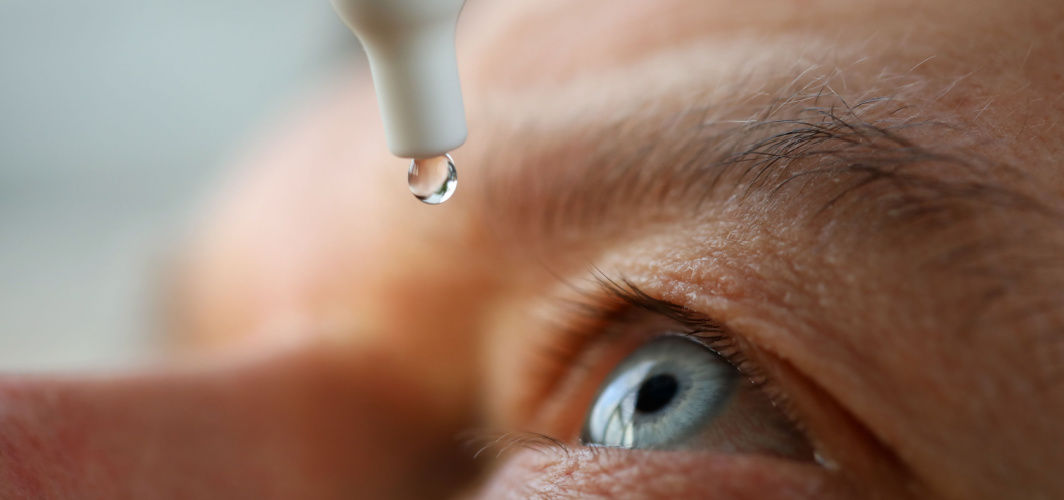General Health
Electrolyte Imbalance: What It Is and How to Prevent It
4 min read
By Apollo 24/7, Published on - 22 October 2021, Updated on - 19 October 2024
Share this article
0
56 likes

The human body needs to maintain an even balance of electrolyte levels for proper functioning. However, due to certain conditions, electrolytes in the body can get too low or too high, causing an imbalance and impairing vital functions. Mild cases can be treated at home by receiving electrolyte replacement, but severe electrolyte imbalances can cause life-threatening complications such as seizures, extreme weakness, bone disorders, and even cardiac arrest. Hence, it is essential to keep a check on the electrolyte balance and fluid intake in the body.
What are electrolytes?
Electrolytes are electrically charged minerals in the body that regulate vital functions. Calcium, chloride, magnesium, sodium, and potassium, and bicarbonates are some of the electrolytes present in the body. When dissolved in water or any liquid (e.g. blood), they change into positive and negative ions. These ions are responsible for the proper functioning of all nerves and cells.
Some of the functions of electrolytes are:
- Calcium is required for muscle contraction
- Maintaining fluid balance in the body through osmosis
- Keeping the pH (acid/alkaline) of the blood in the normal range (7.35-7.45, slightly alkaline).
- Transmitting nerve signals from the heart, muscle and nerve cells to other cells.
- Helps with blood clotting when required.
- Magnesium is involved in neurotransmitter release, ATP metabolism, and contraction and relaxation of muscles.
- Calcium helps in the secretion of hormones.
Symptoms of electrolyte imbalance
If the electrolyte imbalance is mild, there may be little or no symptoms. Usually, symptoms appear when the imbalance is severe and may include:
- Shortness of breath
- Confusion
- Fatigue
- Nausea and vomiting
- Seizures or convulsions
- Muscle cramping
- Diarrhoea or constipation
- Rapid heartbeat
- Weakness
- Difficulty moving
- Irritation
- Excessive sweating post heavy exercise or physical activity.
Conditions caused by an imbalance of electrolytes
The disturbances in electrolyte levels can cause various conditions based on the elevation (hyper) and or depletion (hypo) of a specific electrolyte.
- Potassium – Hypokalemia and hyperkalemia
- Calcium – Hypocalcemia and hypercalcemia
- Sodium – Hyponatremia and hypernatremia
- Chloride – Hypochloremia and hyperchloremia
- Magnesium – Hypomagnesemia and hypermagnesemia
- Phosphate – Hypophosphatemia and hyperphosphatemia
How is electrolyte imbalance diagnosed?
Electrolyte imbalance is often diagnosed after testing when one feels weak or has persistent dizziness due to unknown reasons. Electrolyte levels in the body can be measured with a simple blood test. Other tests like pinch test to check for loss of skin elasticity due to elevated sodium levels may be performed. Since electrolyte imbalances can lead to irregular heartbeat or rhythms, doctors may also recommend an electrocardiogram (ECG).
Electrolyte imbalance: Prevention and treatment
-
Treating underlying medical conditions
Treatment of electrolyte imbalances will depend on the underlying medical problems. Often the electrolyte imbalance will resolve after treating the underlying health conditions. In people with a relatively mild imbalance, this might be the only intervention needed. For example, someone might have an electrolyte imbalance because of untreated type 1 diabetes. In this case, getting treatment with insulin and other therapies may help correct the imbalance.
-
Hydrating
Often, dehydration is a significant cause of an electrolyte imbalance. To resolve this, one must keep themselves hydrated with fluids that contain added electrolytes or receive intravenous fluids if the electrolyte imbalance is severe. On the other hand, if the person is over-hydrated, they might need to limit how much fluids they are drinking and potentially take diuretics (to help them get rid of extra fluid via the urine).
-
Monitoring
Post-treatment of heart, kidney, and liver diseases, one may need to monitor if electrolytes are balanced in the body. This will require follow-up tests of electrolytes after the treatment, especially in the case of kidney problems. Because electrolyte imbalances are so common in people staying in the intensive care unit, they often have their electrolytes checked daily.
-
Consuming a balanced diet
Electrolytes are replenished for most people while having a normal diet containing whole-grain foods, fruits, salads, and at least 8 glasses of water daily. However, electrolytes such as sodium and potassium may be lost due to exercise or profuse sweating. Hence, consuming a diet rich in sodium (e.g. tomato juice, sauce, and soups) and potassium (e.g. yoghurt, banana) is recommended to maintain the ideal electrolyte balance.
-
Electrolyte replacement therapy
Some people might also need to receive additional electrolytes for a limited period to boost electrolytes in the body, especially while recovering from fever, diarrhoea, and chronic diseases. In such cases, oral rehydration therapy containing 2.6g of sodium, 2.9 g of sodium citrate, and 1.5g of potassium chloride dissolved in 1 litre of water is given. Electrolytes may be given through an intravenous line in severe cases of electrolyte depletion.
Conclusion
In summary, electrolytes are minerals found in the blood and tissues throughout the body. They have an electrical charge and most people derive adequate electrolytes from their daily diet. However, significant causes of electrolyte imbalance are often dehydration or overhydration, medications, and profuse fluid loss. Minor electrolyte imbalances can be managed by making diet changes and taking electrolytes orally. However, severe electrolyte imbalance can lead to impaired functions of the heart and nerves.
Studies have found that older adults are more susceptible to electrolyte imbalance than younger adults due to underlying medical conditions and side effects of long-term medications. Hence caregivers and family members should watch out for electrolyte imbalances by regularly monitoring electrolyte profiles and seeking treatment without delay.
Explore a range of electrolyte-enriched beverages to maintain the ideal electrolyte levels in the body.
General Health
Leave Comment
Recommended for you

General Health
9 Natural Foods That Could Lower Your Risk of Cancer
Diet is known to play an important role in cancer development and prevention. Certain foods contain beneficial compounds which can prevent the growth of cancer cells.

General Health
4 Reasons Why You Should Eat Blueberries Every Day
Blueberries are rich in flavonoids, giving them anti-inflammatory and antioxidant properties. They help in stimulating the growth of neurons in our bodies. Consuming them regularly can massively improve your memory, boost brain function and improve your cardiovascular health.

General Health
7 Common Eye Diseases, Types, Causes & Symptoms
Learn about common eye diseases, their types, causes, and symptoms. Find out how you can protect your vision and maintain good eye health.
Subscribe
Sign up for our free Health Library Daily Newsletter
Get doctor-approved health tips, news, and more.
Visual Stories

Plant-based Foods That Are a Great Source of Iron
Tap to continue exploring
Recommended for you

General Health
9 Natural Foods That Could Lower Your Risk of Cancer
Diet is known to play an important role in cancer development and prevention. Certain foods contain beneficial compounds which can prevent the growth of cancer cells.

General Health
4 Reasons Why You Should Eat Blueberries Every Day
Blueberries are rich in flavonoids, giving them anti-inflammatory and antioxidant properties. They help in stimulating the growth of neurons in our bodies. Consuming them regularly can massively improve your memory, boost brain function and improve your cardiovascular health.

General Health
7 Common Eye Diseases, Types, Causes & Symptoms
Learn about common eye diseases, their types, causes, and symptoms. Find out how you can protect your vision and maintain good eye health.